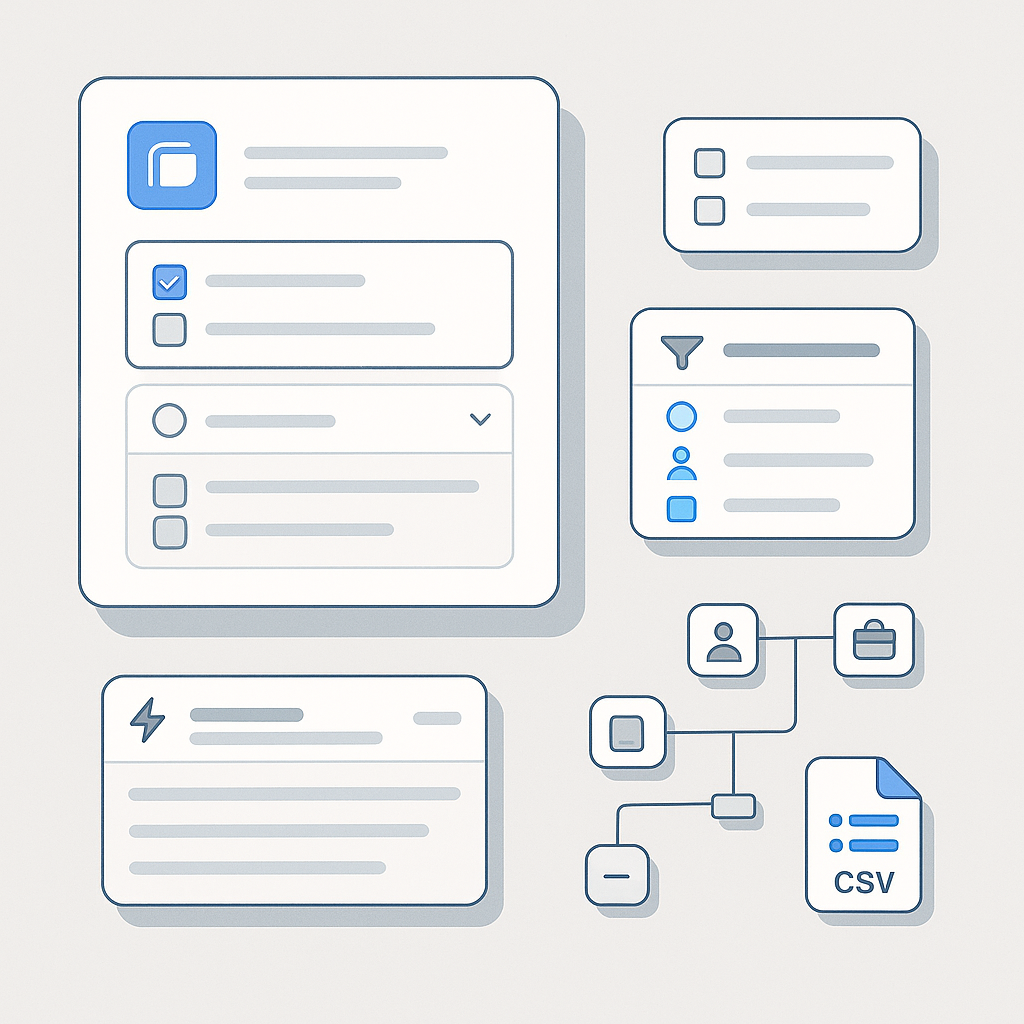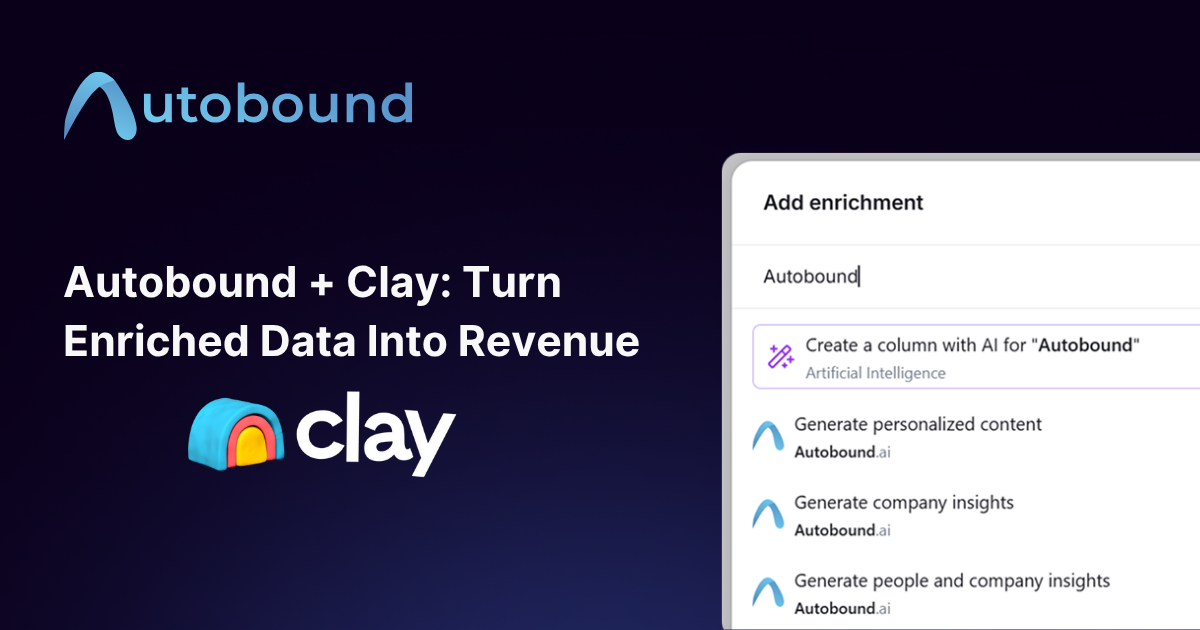Let's face it, crafting the perfect cold email can feel like a Herculean task, especially when you're targeting a niche persona like the Sales Compensation Manager. You pour your heart and soul into crafting a masterpiece of an email, hit send, and... crickets. It's enough to make even the most seasoned sales and marketing pro question their sanity. But here's the thing: Sales Compensation Managers aren't just number-crunching gatekeepers hiding behind spreadsheets. They're the architects of sales motivation, the masterminds behind those juicy incentive programs that make your prospects' sales teams tick. They hold the keys to unlocking a treasure trove of strategic value, influencing tech purchases and whispering sweet nothings into the ears of key decision-makers. This isn't just about closing another deal; it's about forging a strategic alliance that can transform your sales pipeline. So, buckle up as we journey deep into the world of Sales Compensation Managers, arming you with the knowledge, strategies, and yes, even email templates, to turn those deafening crickets into a symphony of conversions.
Understanding the Sales Compensation Manager: Their World and Why It Matters
Who They Are: More Than Just Number Crunchers
Picture this: It's Monday morning, and the Sales Compensation Manager is already knee-deep in spreadsheets, meticulously crafting the perfect incentive plan to motivate their sales team to crush their quotas. They're analyzing performance data, identifying top performers, and strategizing ways to align compensation with ever-evolving company goals. They're the unsung heroes of high-performing sales teams, ensuring that every closed deal translates into a well-deserved commission check and a chorus of cheers. But their role extends far beyond number crunching. They're the architects of sales motivation, the guardians of fairness and transparency, and the champions of sales performance. They're responsible for:
- Designing and managing sales compensation plans: Think of them as the master chefs of sales incentives, blending base salaries, commissions, bonuses, and a dash of strategic thinking to create a recipe for sales success.
- Setting and tracking sales quotas: They set the bar high, but not too high, ensuring that targets are both challenging and attainable, pushing sales teams to reach their full potential.
- Analyzing sales performance data: They're data-driven decision-makers, spotting trends, identifying areas for improvement, and using insights to fine-tune compensation plans for optimal performance.
- Ensuring accurate and timely commission payouts: Because nobody likes a late paycheck, especially when they've earned it. They're the guardians of timely and accurate payouts, keeping sales teams happy and motivated.
- Staying ahead of the curve on market trends and best practices: The world of sales compensation is constantly evolving, and they're the ones leading the charge, researching, adapting, and implementing the latest trends to attract and retain top talent.
Pain Points: What Keeps Them Up at Night?
Sales Compensation Managers might seem like they have it all figured out, but behind those perfectly formatted spreadsheets and data-driven dashboards lie a unique set of challenges that keep them up at night. Understanding these pain points is like finding the hidden treasure map to their hearts (and budgets). Here's a glimpse into their world of worry:
- Manual compensation calculations and spreadsheet nightmares: We've all been there—staring at a spreadsheet with more columns than a Roman temple, praying we don't accidentally delete a formula and throw the entire sales team's compensation into chaos. It's a time-consuming, error-prone process that can lead to inaccurate payouts, frustrated sales reps, and sleepless nights for the Sales Compensation Manager.
- Lack of transparency in incentive programs: When sales reps don't understand how their compensation is calculated, it's a recipe for distrust, confusion, and demotivation. Sales Compensation Managers are constantly striving to create transparent and easy-to-understand incentive programs that foster trust and empower sales teams.
- Difficulty aligning compensation with company goals: It's a delicate balancing act—ensuring that incentives motivate the right behaviors and drive the desired business outcomes. Sales Compensation Managers are tasked with finding the sweet spot between rewarding individual performance and achieving company-wide objectives.
- Keeping up with changing market trends and regulations: The sales landscape is as dynamic as a game of chess, with trends and regulations constantly shifting. Sales Compensation Managers are tasked with staying ahead of the curve, ensuring their compensation plans are competitive, compliant, and aligned with the latest industry best practices.
These pain points aren't just anecdotal; they're backed by industry research. Forrester, in their insightful SiriusView report, emphasizes the need for more agile and data-driven approaches to sales compensation management, highlighting the importance of tools and strategies that enable "real-time visibility into performance and payouts." (The Sales Compensation Management SiriusView) They understand the need for solutions that simplify their lives, streamline their processes, and empower them to focus on what truly matters—motivating sales teams and driving revenue.
Why Target Them: Unlocking Strategic Value
Selling to Sales Compensation Managers isn't just about adding another notch to your sales belt; it's about forging a strategic partnership that can unlock a treasure trove of benefits. These individuals aren't just guarding the castle gates; they're holding the keys to the kingdom. Here's why they deserve a prime spot on your target list:
- Gatekeepers to Sales Leaders: They're the trusted advisors to VPs of Sales, CFOs, and other key decision-makers involved in sales technology purchases. They have the ear of the people who sign the checks, and their recommendations carry significant weight.
- Influence on Technology Purchases: Sales performance management (SPM) and incentive compensation management (ICM) software? They're all over it. Gartner, a leading research and advisory company, reports that "sales performance management is a suite of operational and analytical functions that automate and unite back-office operational sales processes, and are implemented to improve operational efficiency and effectiveness." (Best Sales Performance Management Reviews 2024 | Gartner Peer Insights) They're actively seeking solutions to streamline their processes, improve accuracy, and drive better sales outcomes.
- Early Adopters: They're not afraid to embrace innovation. They're constantly on the lookout for cutting-edge solutions that can give them a competitive edge, improve their team's performance, and make their lives easier.
By aligning your messaging with their needs, demonstrating a deep understanding of their challenges, and positioning your solution as a strategic asset, you're not just selling a product; you're building a relationship that can pay dividends for years to come.
Key Strategies for Effective Outreach to Sales Compensation Managers
Now that you're well-versed in the world of Sales Compensation Managers, it's time to craft outreach strategies that will make them hit "reply" faster than you can say "sales performance management."
Focus on Their Pain Points, Not Your Product
It's tempting to bombard them with a laundry list of your product's bells and whistles, but resist the urge! Sales Compensation Managers, like anyone, are more receptive to messages that resonate with their challenges. Instead of singing your own praises, start by demonstrating empathy and understanding.
- Emphasize understanding: Step into their world. Use their language, echo their concerns, and show them you genuinely "get" their day-to-day struggles. Instead of diving headfirst into your AI-powered automation, acknowledge the complexities of managing sales compensation plans in today's dynamic business environment. Let them know you understand their pain.
- Provide value upfront: Don't make it all about you. Offer something valuable before asking for anything in return. Share a thought-provoking blog post, a data-rich white paper, or a relevant industry report that addresses their specific pain points. For instance, you could provide a resource on best practices for sales compensation plan design or highlight common pitfalls to avoid. Become a trusted resource, not just another salesperson.
Speak Their Language (Clarity Over Jargon)
Remember, you're not trying to win a jargon-slinging contest. Keep your language clear, concise, and relatable.
- Avoid technical jargon: Unless you want their eyes to glaze over faster than a Krispy Kreme donut, stick to plain English and focus on conveying value in a way that's easy to understand.
- Use relatable examples: Illustrate how your solution solves real-world problems they face daily. Instead of saying, "Our platform leverages AI to automate incentive calculations," try, "Imagine eliminating those late-night spreadsheet sessions by automating your entire commission process." Paint a picture they can relate to.
- Focus on the benefits: Don't just tell them what your product does—tell them how it will make their lives easier, improve their team's performance, or save the company money. For example, you could say, "Our platform helps eliminate manual compensation errors, ensuring your team gets paid accurately and on time - boosting morale and saving you valuable time." Benefits over features, always.
Personalization is Key (Go Beyond the Merge Tag)
In the age of hyper-personalized marketing, generic, one-size-fits-all emails are about as effective as a screen door on a submarine. Sales Compensation Managers can spot a mass-blast a mile away. To truly capture their attention, you need to tailor your messaging to their specific needs and interests.
- Research, Research, Research: LinkedIn is your best friend here. Dive into their profiles, explore their company websites, and stay informed about industry news and trends. Did their company recently receive funding? Mention how your solution can help manage compensation for a rapidly growing sales team. Did they share an article about a specific challenge they're facing? Use that as a conversation starter and position your solution as a potential solution. Show them you've done your homework.
- Tailor Your Messaging to Their Specific Needs and Goals: Are they focused on improving sales team motivation? Highlight how your solution drives engagement and performance. Are they concerned about compliance and accuracy? Emphasize the robust reporting and audit capabilities of your platform. Make it about them, not you.
- Utilize Data & Insights: Back up your claims with compelling statistics and real-world examples. For instance, you could say, "Companies using sales performance management software see an average of 15% increase in sales productivity." Numbers speak louder than words.
Nail the Subject Line: Intrigue and Relevance Are Crucial
Your subject line is your first (and sometimes only) chance to make a good impression. It's the digital equivalent of a firm handshake—it needs to be strong, confident, and attention-grabbing.
- Example Subject Lines:
- "[Company Name] - Streamlining Your Sales Compensation Process"
- "Solving Sales Compensation Challenges for [Prospect's Industry]"
- "Quick Question About Your Incentive Program"
Keep it Concise & Action-Oriented
Sales Compensation Managers are busy people. They don't have time to wade through paragraphs of fluff. Get to the point quickly, highlight key takeaways using bullet points, and always include a clear call to action.
- Respect their time: Keep your emails short, sweet, and to the point. Think of it as a well-crafted haiku, not a rambling epic novel.
- Include a clear call to action: What do you want them to do next? Schedule a call, download a resource, visit a specific page on your website? Make it crystal clear. Don't leave them hanging.
Email Templates: Proven Frameworks to Engage Sales Compensation Managers
Ready to put these strategies into action? Here are three email templates to get you started. Remember, these are just starting points—customization is key!
Template 1: The Pain Point-Focused Opener
- Subject: Struggling with [Specific Sales Compensation Challenge]?
- Body: Hi \[Prospect Name],
- I know how challenging it can be to manage sales compensation plans, especially with the ever-increasing pressure to [Specific pain point, e.g., "ensure accurate payouts" or "align incentives with company goals"].
- At [Your Company], we're helping businesses like yours overcome these challenges with our [Briefly introduce your solution and its key benefit related to their pain point].
- Would you be open to a quick 15-minute call to discuss how we can help [Solve their specific problem]?
- Best regards,
- [Your Name]
Template 2: The Data-Driven Value Proposition
- Subject: Companies see a 15% increase in sales productivity with [Your Solution]
- Body: Hi \[Prospect Name],
- Did you know that companies using sales performance management software see an average of 15% increase in sales productivity?
- At [Your Company], we're helping sales teams achieve [Key benefit of your solution related to the statistic] with our [Solution name].
- For example, [Client name] saw a [Specific result] after implementing our platform.
- Ready to learn more? Let's schedule a quick chat: [Link to scheduling tool].
- Best,
- [Your Name]
Template 3: The Thought Leadership Opener
- Subject: Have you seen this article on [Relevant Industry Trend]?
- Body: Hi \[Prospect Name],
- I came across this article on [Relevant industry trend] and thought you might find it interesting: [Link to article].
- At [Your Company], we're seeing similar trends in the sales compensation space, and our [Solution name] is specifically designed to help businesses like yours [Briefly explain how your solution aligns with the article's topic].
- Would you be interested in exploring how we can help your team stay ahead of the curve?
- Sincerely,
- [Your Name]
Measuring Success and Optimizing Your Approach
Sending emails is just the first step—you need to track their performance and continuously optimize your approach to maximize results.
Tracking Key Metrics:
- Email open rates: A low open rate? Time to revamp those subject lines! A/B testing is your friend here.
- Click-through rates: Are people clicking on your links? If not, your calls to action might need some work.
- Meeting booking rates: The ultimate goal is to start conversations. Track how many of your emails lead to actual meetings.
- Sales pipeline and revenue generated: Ultimately, you want to see how these campaigns translate into tangible business outcomes.
Iterating and Improving:
- Analyze what’s working and what’s not: Don't be afraid to experiment with different messaging angles, subject lines, and calls to action. The world of sales is a constantly evolving experiment.
- Don’t be afraid to try new things and constantly refine your approach: What worked yesterday might not work tomorrow. Stay curious, stay adaptable, and never stop optimizing.
Conclusion
Selling to Sales Compensation Managers requires a targeted, strategic approach that goes beyond generic templates and mass blasts. By understanding their world, speaking their language, and focusing on their pain points, you can craft compelling outreach that cuts through the noise and drives results. Remember, personalization is key—take the time to research your prospects, tailor your messaging, and offer value upfront. Track your metrics, iterate on your approach, and never stop optimizing. Now go forth and conquer those inboxes!
About Autobound
Autobound's leading AI-powered platform delivers 350+ unique insights for go-to-market teams from financial filings, social media activity, 35 news events, competitor trends, job changes and more. Trusted by 7,000+ companies including TechTarget and validated by 220+ 5-star G2 reviews, we're unlocking hyper-personalization at scale, with native integrations for Salesloft, Outreach, and more. Leverage our developer-friendly API, try our Chrome extension, try our platform free, or contact our team to eliminate guesswork and drive measurable growth →
Built with love in San Francisco, CA




